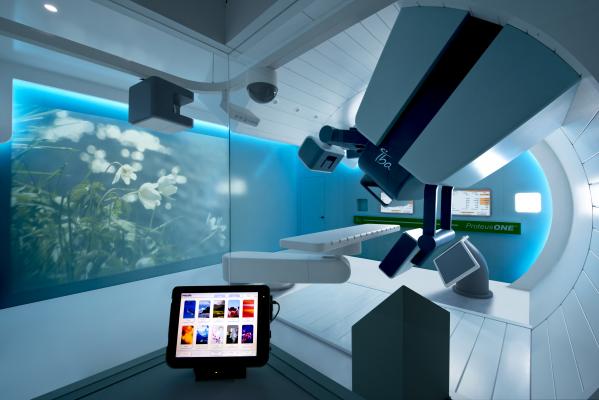
October 27, 2015 — IBA announced that longtime customer and research partner Penn Medicine has upgraded the equipment of its Roberts Proton Therapy Center with the latest innovations in proton therapy treatment. This upgrade to the newest technologies will allow Penn Medicine’s staff to continue to offer top-level proton radiation therapy services to an increasing number of patients and to further advance the clinical application of proton therapy.
Penn Medicine treated its first proton patient in March 2010. Research collaborations with IBA are extensive, with Penn Medicine contributing to the research on pencil beam scanning (PBS) protocols and cone beam computed tomography (CBCT), among others. Penn Medicine’s proton therapy facility and experts also play a key role in IBA’s training program, sharing knowledge and experience to contribute to the education of the entire proton therapy community.
Recent acquisitions by the Roberts Proton Therapy Center include:
- Having taken part in the development and optimization of IBA’s CBCT, Penn Medicine has opted to purchase this image guidance tool, which ensures increased accuracy in patient positioning and brings the center one step closer to adaptive proton therapy treatment;
- Penn Medicine will replace one of its universal nozzles to a dedicated PBS nozzle. This brings Penn Medicine to a total of four PBS treatment rooms, with one double scattering treatment room remaining. It will allow Penn clinicians to offer the most accurate delivery of proton therapy currently available to a larger number of patients, while maintaining the advantage double scattering provides when treating moving targets. This adapted configuration provides Penn Medicine with the option to cover a very broad range of indications, with fixed as well as moving targets; and
- For research purposes, Penn Medicine will also deploy the Universal Monitoring Interface (UMI) and Adapt Analytics software. These software applications are used to monitor how much time is spent on and by the patient at different treatment stages. The aim of this research is to improve the workflow efficiency in order to optimize throughput. Ultimately, it will allow more patients, at Penn Medicine and elsewhere, to benefit from proton therapy treatment.
The current Penn Medicine upgrade exceeds $3 million USD, and IBA still has a general pipeline left of $7 million.
James Metz, M.D., chair of Penn Medicine Department of Radiation Oncology, commented, “The clinical application of proton therapy is a medical field in full evolution. At Penn Medicine, we believe in its potential and are fully committed to helping its realization, leveraging topnotch technology to make sure that as many eligible patients as possible can benefit from this radiation therapy modality, now and in the future.”
For more information: www.iba-worldwide.com


 February 04, 2026
February 04, 2026 









